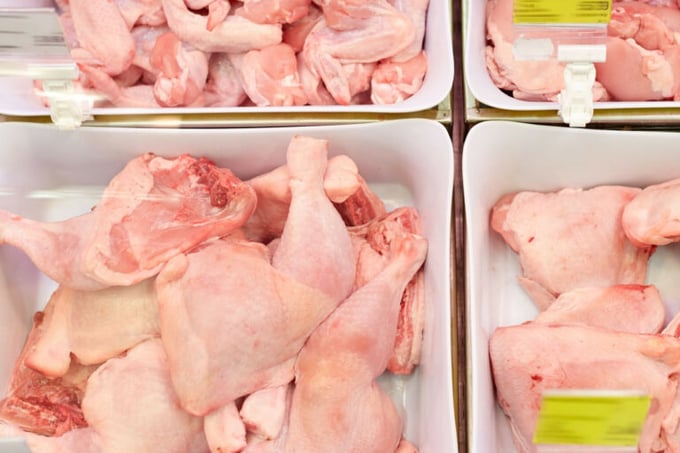December 13, 2025 | 17:35 GMT +7
December 13, 2025 | 17:35 GMT +7
Hotline: 0913.378.918
December 13, 2025 | 17:35 GMT +7
Hotline: 0913.378.918

However, the Russian Agricultural Ministry insisted that the quota played a crucial role in balancing the Russian poultry market. Photo: Canva.
Authorities indicated that poultry imports to Russia failed even to take off.
Under the quota, the Russian government allowed the export of 140,000 tonnes of poultry duty-free to Russia during 2024. As of early September, 97,200 tonnes of this volume remained unattended, the Agricultural Ministry estimated. This means that 42,800 tonnes were actually delivered to the country, the Ministry said, adding that the registered contracts envisage the delivery of 4,300 tonnes more poultry to the country.
Russian officials believe there is no point in permitting duty-free poultry exports to the country in 2025. “The Russian Ministry of Agriculture is constantly monitoring prices for socially significant products, including meat products. The situation is stable, and extending the measure to 2025 is not currently being considered,” the Ministry said.
The Russian poultry industry has consistently voiced its concerns about the government’s decision to introduce the duty-free import quota. Their criticisms have not gone unnoticed.
“The introduction of the tariff quota for 2024 sends a negative signal for the industry,” Sergey Lakhtyukhov, general director of the Russian Union of Poultry Farmers claimed during an industry conference earlier this year.
He recalled that Russian authorities introduced a duty-free quota on pork imports several years ago. As a result, only about 15,000 tonnes out of a 100,000 quota was delivered, Lakhtyukhov said, adding that the picture is similar to the poultry quota.
Lakhtyukhov said a group of Russian poultry farmers lobbied for the quota’s introduction and justified the measure by providing inaccurate data to the authorities. The same meat processors also took advantage of the measure, though they have not ramped up imports. In fact, they purchased similar quantities as in the previous year and only avoided paying the duty.
Under the quota, poultry was primarily imported by meat processors based in the Kaliningrad region, a Russian exclave in Europe, Lakhtyukhov stated.
However, the Russian Agricultural Ministry insisted that the quota played a crucial role in balancing the Russian poultry market. In a statement published by a Russian government official publication, the Ministry said that, among other things, the measures helped constrain the rise in prices for sausages in the country.
Since the end of 2023, the wholesale price of chilled and frozen poultry in the country dropped by 3.7%, the Ministry calculated.
(Poultryworld)

(VAN) The event calls for urgent action to preserve glaciers, and recognises Mountain Future Award-winning projects in Colombia, Kyrgyzstan and Pakistan that protect mountain ecosystems and build resilience.

(VAN) New evidence shows that the health impacts of the Industrial Revolution varied more widely than previously believed, challenging the longstanding narrative that rural communities remained comparatively untouched.

(VAN) FAS forecasts a 2.2% rise in corn imports for MY 2025-26, reaching 15.8 million tonnes, the highest volume in six years.

(VAN) Donald Trump said he is considering 'very severe' tariffs on imports of fertilizer from Canada, as the U.S. prepares a multibillion-dollar funding package for its own farmers.

(VAN) Initiative launched in Cairo honors villages that are helping drive agrifood systems transformation.

(VAN) The European Union agreed Wednesday to phase out Russian natural gas imports by late 2027 as part of an effort to end the bloc’s decade-long dependency on Russian energy.

(VAN) Indonesia plans a US$1.2 billion investment in feed mills to boost poultry feed production.